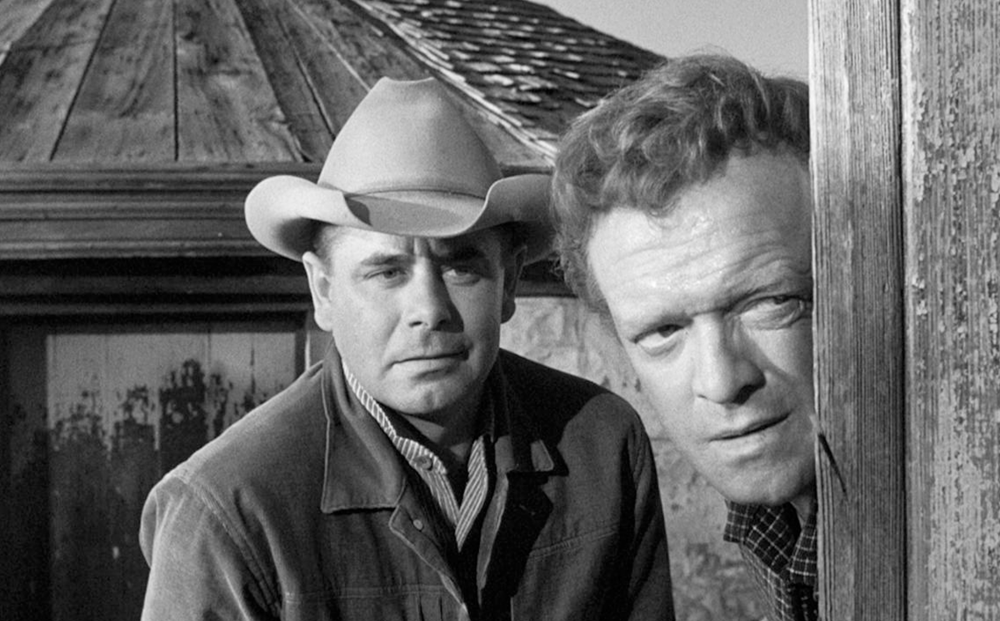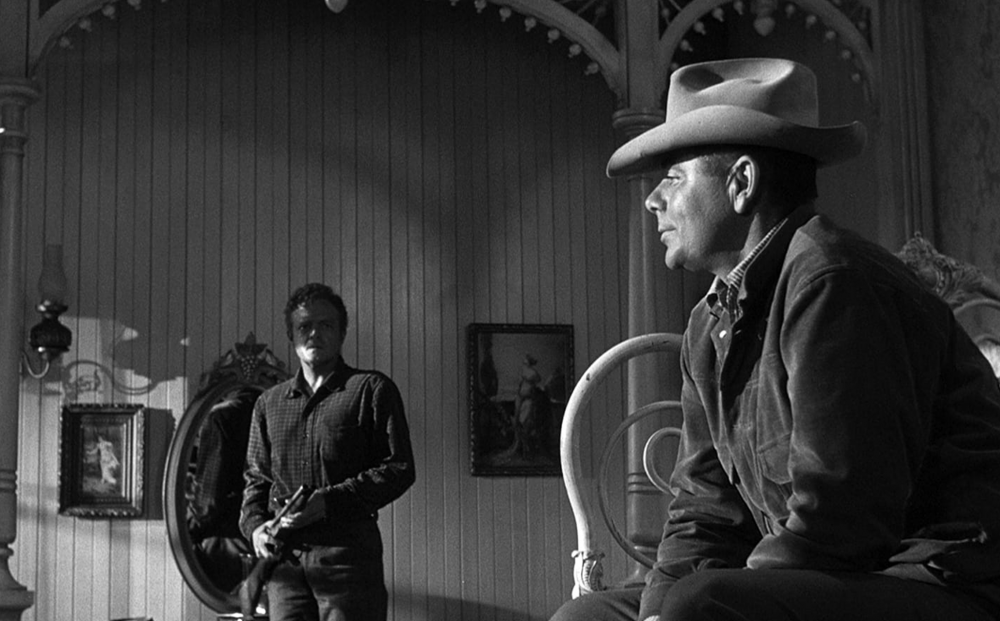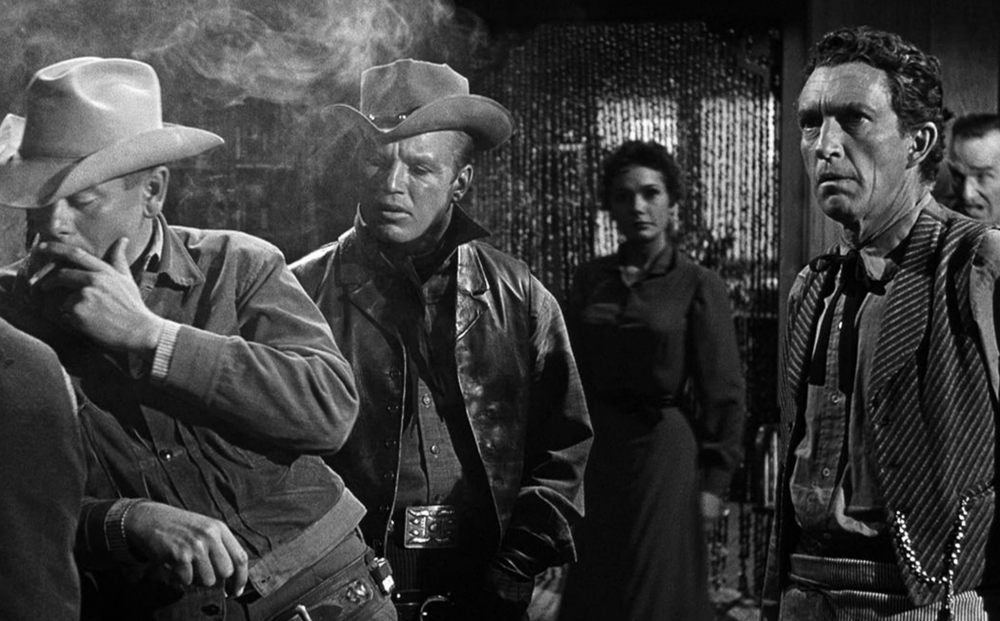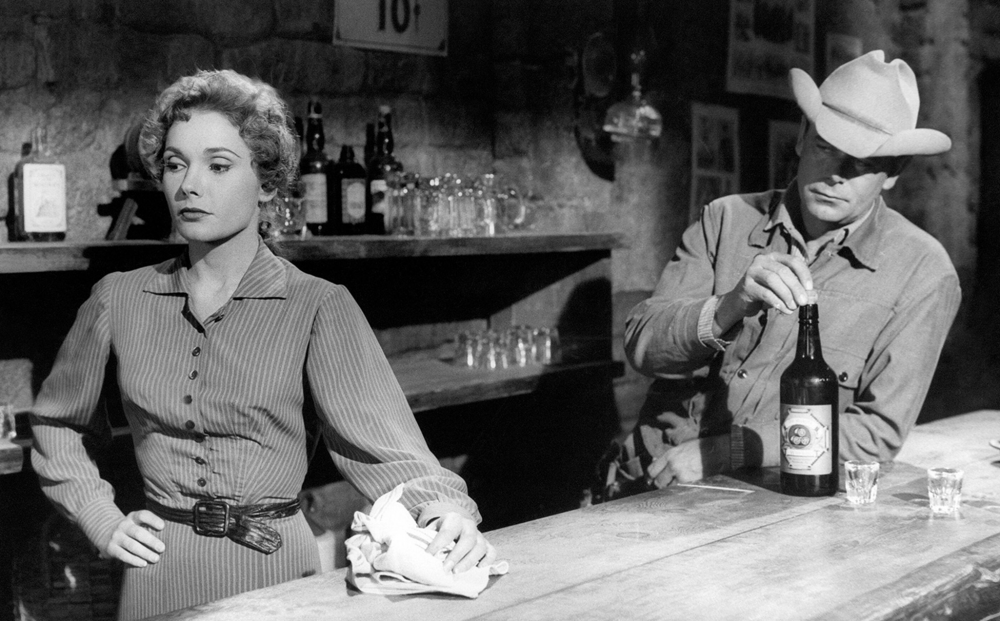3:10 TO YUMA
U.S., 1957
Directed by Delmer Daves
Starring Glenn Ford, Van Heflin, Felicia Farr
Approx. 92 min. DCP.
200 measly bucks to make sure Glenn Ford's notorious outlaw Ben Wade gets on that prison-bound train? After he's already killed two men (including one of his own) during a stage hold-up in front of rancher Van Heflin and his why-didn't-you-fight-them sons; casually redirected the ensuing posse into a wild goose chase after... himself; sweet-talked barkeeper Felicia Farr (Jack Lemmon's wife-to-be) into a puddle of mush in minutes; and with suspicious nonchalance let himself be captured by the indignantly returning marshal? Well, after three years of drought, that's the price for the water rights that Heflin needs to keep his spread going. Only trouble is, Ford's now-scattered wild bunch will be coming back fast, and the only other volunteer is the town drunk. And the oh-so-relaxed Ford keeps upping those bribe offers. Nerve-shredding Western Noir — with the shadow of a chandelier-hung corpse swaying against a hotel lobby wall — and HIGH NOON in reverse, with Ford's greatest performance, as the ever-smiling, ever-charming Wade, Mephistophelenally enigmatic until the final payoff. And, of course, with 50s Westerns icon Frankie Laine wailing that title song. "A classic Western, (its] formal perfection — close-ups alternating with crane shots, a psychological drama indoors alternating with the natural drama of the parched land waiting for the coming of water — defuses the uneasy contrast between Ford's amiable, but deadly, scoundrel and Heflin's distress at his failing ranch and the failure of those around him to take their social responsibilities at all seriously." – Phil Hardy. "A classic Western scenario... Ford [works] on Heflin's nerves in a stream of Machiavellian banter, but one held in perfect balance by Daves, who keeps the tension strung taut (especially in the gauntlet-running final walk to the station) while at the same time elaborating a subtle psychological conflict. The nerve center is exposed in an early scene where Heflin, the dour family man careworn by responsibilities, watches as his wife and sons come under the spell of Ford's caretree charm: the conflict, ultimately, stems from each man's envy of what the other has." – Tom Milne, Time Out (London).
Reviews
“It is, as Bertrand Tavernier has written, a "magnificent parable of liberty"—as well as a moving depiction of a marriage at a crossroads, a fascinating study in ambiguity, and one of the most visually striking of all westerns. On many levels, 3:10 TO YUMA stands alone in the genre and, I think, in American cinema.”
– Kent Jones, Criterion Channel
“In the tradition of many American westerns, 3:10 TO YUMA is a study in masculinity that dramatizes a man's struggle to balance the needs of his community—or, in this case, his family—with his personal needs as an individual, though the film is distinctive from a conventional oater in a number of ways, particularly for its spare, naked immediacy”
– Chuck Bowen, Slant




